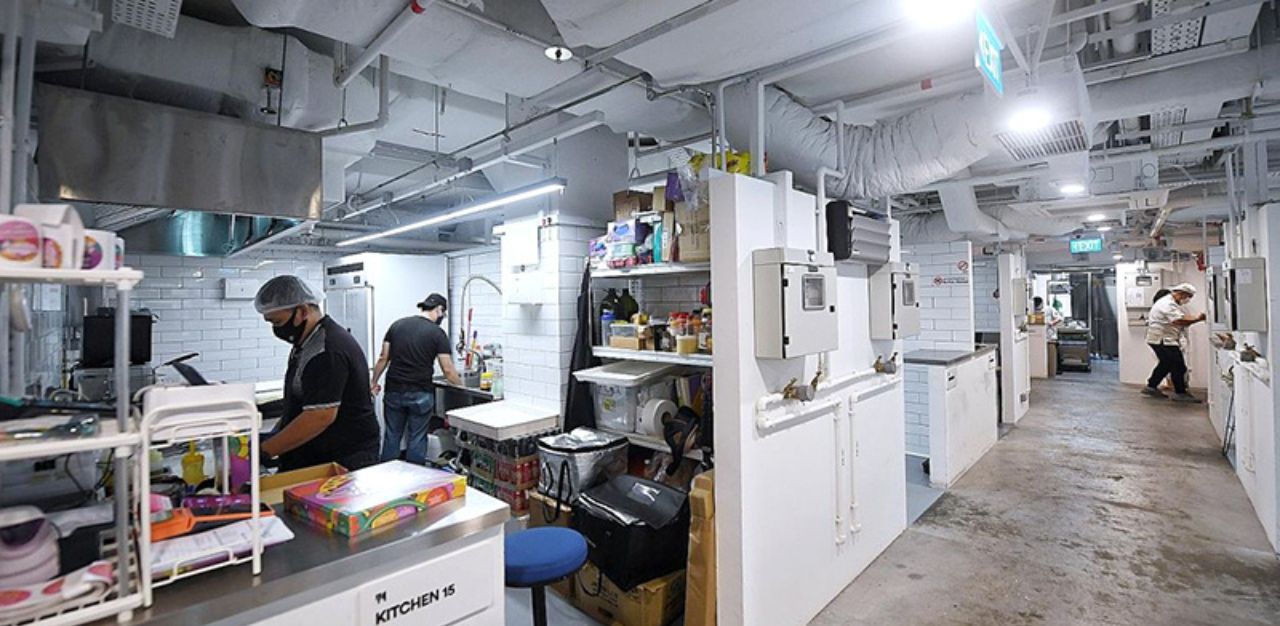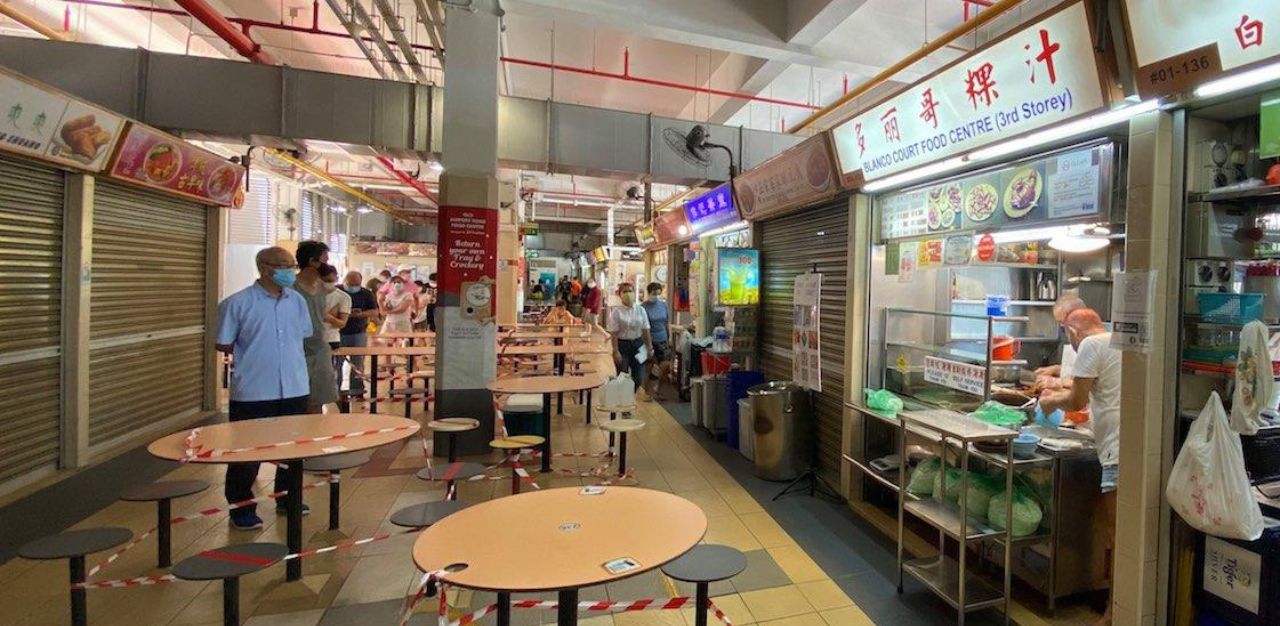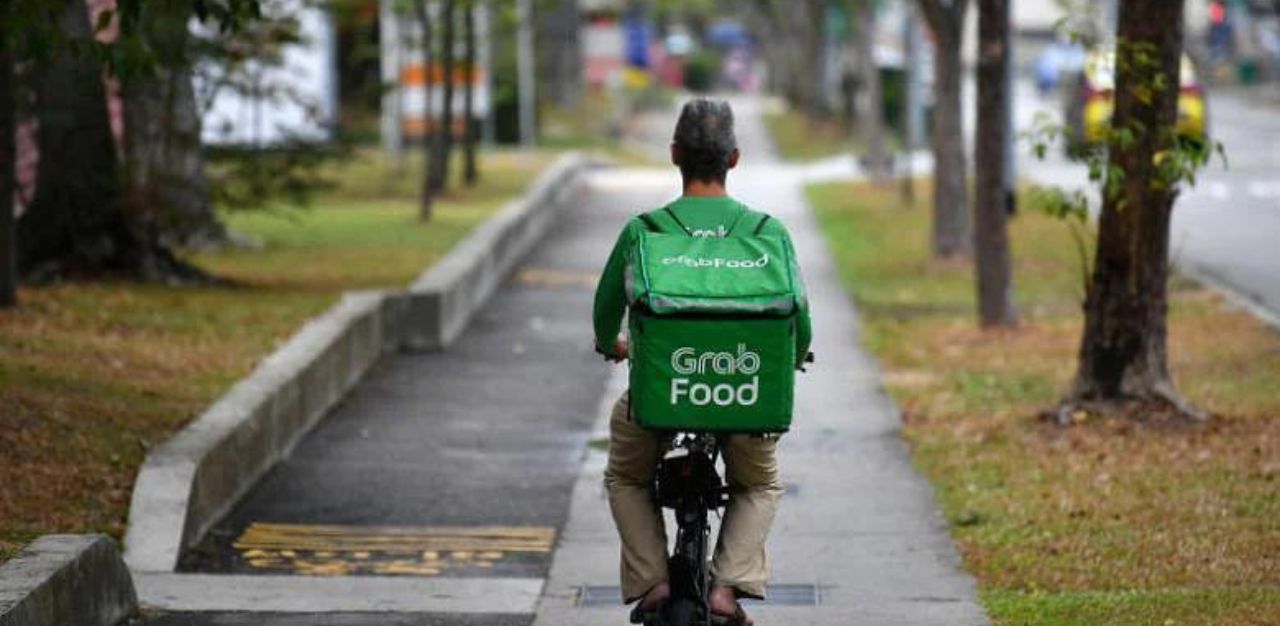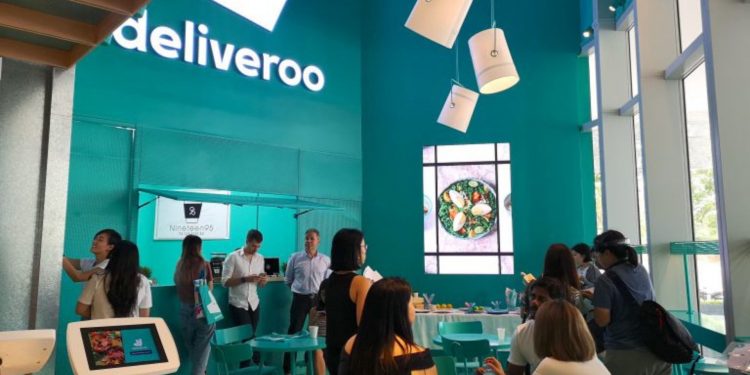Is it a bird? Is it a plane? No, it is a kitchen in the sky – figuratively speaking, that is. Cloud kitchens, also referred to as ‘ghost’ and ‘virtual’ kitchens, are shared commercial kitchens specially catering to food delivery.
According to researcher Statista, the revenue in the online food delivery sector in Singapore is projected to reach US$493.60m in 2022. It is also expected to show an annual growth rate of 9.59 per cent, for a projected market volume of US$780.30m by 2027.
With the rise of rental prices in Singapore on a streak and soaring to new heights, and some coffeeshops changing hands at the price of a good class bungalow, the cloud kitchen industry is becoming a solution here.
Players, such as Deliveroo, GrabFood, and FoodPanda, have been leading this boom, pouring investment into the opening of facilities and partnerships with F&B retailers to entice them on board.
In Oct 2021, Foodpanda announced a “long-term, multi-market” partnership with Rebel Foods to “enable restaurant partners and cloud kitchen operators to grow additional revenue streams, at little or no start-up costs”. Through the partnership, both companies aim to launch more than “10 virtual brands in over 2,000 outlets across the region”.
Most recently, cloud kitchen operator SmartCity Kitchens opened its eighth CloudKitchens® facility in Bedok in May. The company’s newest facility adds 24 CloudKitchens® units to its existing 200 units across the island and is positioned to reach 650,000 potential diners within its service area.
As the F&B industry in Singapore navigates the growing struggles of manpower crunches, profitability, and changing consumer preferences, perhaps the future of food lies in the reach of these clouds.
Optimised by the cloud kitchens
Entrepreneurs and owners of Wafuken Jake Pang and Edmund Goh are bullish about the opportunities that cloud kitchens offer.
“We first decided to partner with Deliveroo Editions as we were hoping to have some presence for our brand in the Buona Vista area. We were very apprehensive about investing directly into a brick and mortar outlet right away, so we decided to partner Deliveroo Editions as they already had the venue, infrastructure and equipment in place,” says the pair.
Food service industry resource platform AllaboutFnB reports that the average startup for an F&B business in Singapore ranges from S$50,000 to S$500,000, depending on factors like location and size.
In contrast, property portal EdgeProp reports that rental for a 150 square feet space in cloud kitchen facilities start from S$3,300 a month in a heartland location, while a prime location starts from S$4,500 a month. These spaces are equipped with air-conditioning, exhaust pipes and basic kitchen equipment, allowing F&B operators to get started quickly without bearing high operating costs.
The duo who are behind Wafuken’s health-conscious sous-vide bowls have been in business since 2016 with two physical stalls in the Downtown area. After setting up shop in Deliveroo Food Market at ALICE@MEDIAPOLIS, the pair are weighing up more of such opportunities in the future.
Some other benefits from working with cloud kitchens include tapping on the platform’s base of users for new menu concepts and the operational support provided for SMEs.
“With Singapore’s manpower shortage in the F&B industry, having a cloud kitchen saves F&B businesses like ours a lot of hassle and headache in knowing that we can trust our cloud kitchen partner to oversee (the preparation of the food) and also rely on it,” they add.

Even for larger brands like the Soup Restaurant Group which has 17 retail outlets in three countries and over 350 staff members, the benefits presented by cloud kitchen is not one to miss.
“Since we entered the food delivery space in 2017, we have noticed a paradigm shift in consumer dining behaviour towards food delivery. With the growing demand for reliable food delivery, we decided to partner Deliveroo Editions to reduce customers’ pick-up and delivery time, while ensuring a consistent food standard,” says Head of Marketing for Soup Restaurant Group Irin Lau.
“We are also able to reduce logistics time and operate with minimum manpower and investment, while ensuring a consistent food standard,” she adds.
Ms Lau says that throughout Soup Restaurant Group’s partnership, Deliveroo has provided them with “constructive insights” which have been useful for their business strategies. The platform was able to glean insights from data based on customer demographics and locations, to advise partners on promotion mechanics, price points as well as the product mix that are most suitable for specific locations or campaigns.
“We believe delivery platforms like Deliveroo better enable SMEs like ourselves to extend our reach, expand our customer base, while enabling us to improve productivity when we utilise excess capacity during our off-peak periods,” she says.
Pandemic changes
During the two years of Covid-19 restrictions, where dining restrictions caused delivery services to rise in demand, cloud kitchens presented businesses with an avenue to meet this demand.
“Post-pandemic, cloud kitchens have definitely helped save several F&B businesses, as food deliveries have become an essential part of consumers’ daily lives. In fact, we have observed that many of our customers continue to order from food delivery platforms even after the pandemic,” says co-owner of Pho Stop Xun Da.
He adds that the pre-pandemic era is characterised by a shift in consumer behaviour to online consumption. This shift to online puts pressure on F&B businesses to cater for delivery. Cloud kitchens are generally set up near highly populated areas, thus helping F&B businesses penetrate these areas as consumers shy away from traditionally crowded shopping areas.
For Mr Goh and Mr Pang, the results from working with the cloud kitchen outlet during the pandemic have made them firm believers in the model.
“During the pandemic, the F&B market grew incredibly competitive, with many eateries bracing for income loss due to the dine-in ban. Revenues significantly dipped and recovery was slow with each phase of Singapore’s Covid-19 journey. Cloud kitchens were a real saving grace. At Wafuken, we were really fortunate to have our Editions outlet so we still had a steady stream of revenue. In fact, during the pandemic, our outlet on the Deliveroo Editions platform alone observed double digit growth in revenue, orders and new customers, which definitely helped to pad Covid-19’s impact,” the pair says.
“Post-pandemic, I think cloud kitchens will continue to be a mainstay. The F&B landscape has changed forever with more people ordering food delivery even after the pandemic. It has become a part of people’s daily lives. For us, cloud kitchens are another source of growth and revenue,” they add.

“Cloud kitchens in particular enabled F&B operators to operate with minimum manpower cost, while still offering a steady stream of revenue during the pandemic where there were restrictions on dine-in. Post-pandemic, cloud kitchens further enable F&B businesses to expand without incurring additional set-up costs, hence reducing risks of investment and increased cashflow. It also empowers small F&B businesses to maximise kitchen productivity, not limited by seating capacity,” says Ms Lau.
Mr Xun Da is similarly on the lookout for opportunities that cloud kitchens present.
“We have plans to establish our brands by having our businesses in more cloud kitchens, particularly in the Western and Northern parts of Singapore. We will also continue to look for ways to grow our brands and cuisines and widen the range of products under our current brands, so as to cater to customers’ evolving food preferences,” he says.
As a business owner with one physical outlet in Downtown Singapore, the resources and expertise of delivery platforms help her business streamline and innovate.
“Restaurant partners like ourselves also have regular meetings with the Deliveroo Editions team to discuss ways to improve the efficiency and effectiveness of the partnership. For example, we frequently exchange ideas and experiences with the Deliveroo Editions team, which enables us to continuously improve our menu offerings,” he adds.
The future of food

As restaurants and platforms reap the benefits of the groundwork sown into the cloud kitchen model, there are still several factors up in the air as to how far it might go.
Foodpanda cut about 5 per cent of jobs in a bid to stay profitable. This came after opening its headquarters in Robinson Square. At an estimated 37 per cent of market share for food delivery in Singapore, this could signal more changes to come in a competitive industry.
Additionally, the industry is designed to cater to delivery and is dependent on gig workers. The ride-hailing industry, comprised private-hire and company workers, has seen a recent fall in the pool of drivers causing a price surge amidst demand spikes.
Furthermore, delivery riders might be subject to new policy changes. In Nov 2019, bans on personal mobility devices (PMDs) were implemented after a spate of fatal collisions. Guidelines on the safety, compensation, and welfare of delivery riders are being discussed by the government and food delivery firms.
While such factors pose hurdles that the cloud kitchen operators need to navigate, with the confidence of F&B partners and strong growth forecast for the delivery market, hopes for growth within this industry is sky high.
“Following the success at Buona Vista, we recently opened another outlet at Deliveroo Editions at Katong in June and if all goes well, Wafuken will be keen to go into other locations with Deliveroo Editions,” says Mr Goh and Mr Pang.
RELATED: Better, safer conditions for Singapore’s essential delivery riders, that is all
Join the conversations on TheHomeGround Asia’s Facebook and Instagram, and get the latest updates via Telegram.














